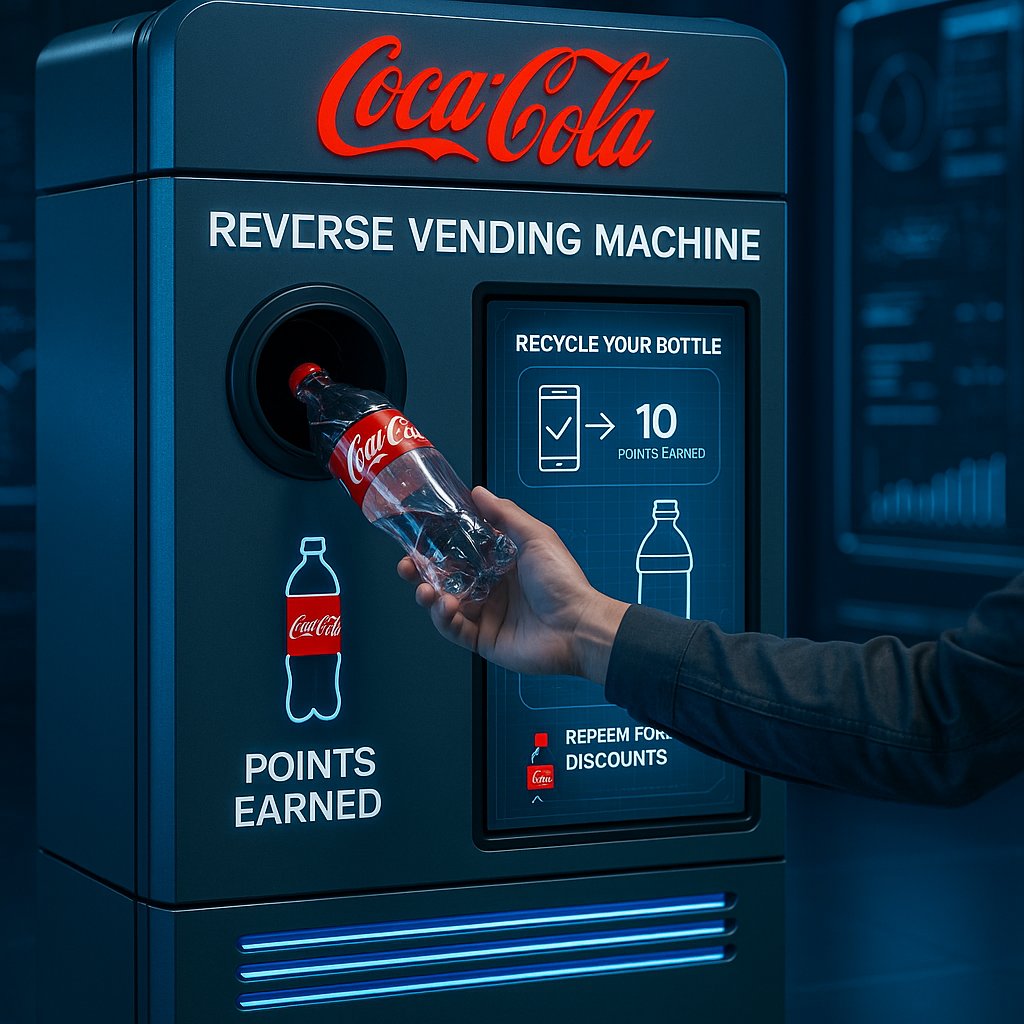Image created by AI
Coca-Cola Launches Reverse Vending Machines in East India to Tackle Plastic Pollution
In a bold move towards environmental sustainability, Coca-Cola India has rolled out an innovative recycling initiative in East India with the installation of 'reverse vending machines' (RVMs). This project, developed in partnership with Biocrux India, aims to tackle one of the most pressing environmental issues today — plastic pollution.
The newly introduced RVMs allow consumers to deposit their used Coca-Cola bottles, which are then compacted and stored within the machine. Remarkably, each machine has the capacity to store up to 800 bottles before they require emptying. This not only ensures efficient collection but also facilitates the recycling process, turning these bottles into useful products like clothing, bags, and more packaging.
What sets this initiative apart is the integration of a mobile application that rewards users with points for each bottle deposited. These points can be redeemed for discounts on various Coca-Cola products, effectively incentivizing consumer participation in recycling efforts. This user-friendly approach hopes to integrate recycling into everyday behavior, as emphasized by Rajesh Ayapilla, a senior director at Coca-Cola India and South West Asia. He noted, "By introducing reverse vending machines in Puri, we're enabling people to take simple yet meaningful steps to make recycling part of everyday behavior."
The initiative not only enhances Coca-Cola's commitment to addressing the global plastic waste problem but also strives to uplift community involvement in environmental conservation. The deployment of RVMs in Puri and their potential expansion to other regions could indeed set a precedent for other cities worldwide, demonstrating a scalable and effective model for corporate responsibility in waste management.
Coca-Cola, recognized as one of the largest plastic polluters globally, has faced significant criticism over its environmental footprint. The introduction of these machines is a step towards mitigating their impact and contributing positively to global sustainability goals. Furthermore, with Biocrux India's capability to remotely monitor the performance of these RVMs, Coca-Cola can garner detailed insights into participation rates and recycling volumes, further refining the initiative.
However, despite the potential positive impact of these reverse vending machines, Coca-Cola acknowledges that there is still a substantial journey ahead in its global environmental strategy. Continued efforts and innovations will be crucial for Coca-Cola to reshape its legacy concerning plastic use and pollution.
This project aligns with broader environmental goals and reflects a growing trend of corporations stepping up to address environmental challenges through innovative technology and community engagement. As initiatives like these expand, they have the potential to foster a more sustainable and aware consumer base, making recycling an integral part of lifestyle choices globally.










